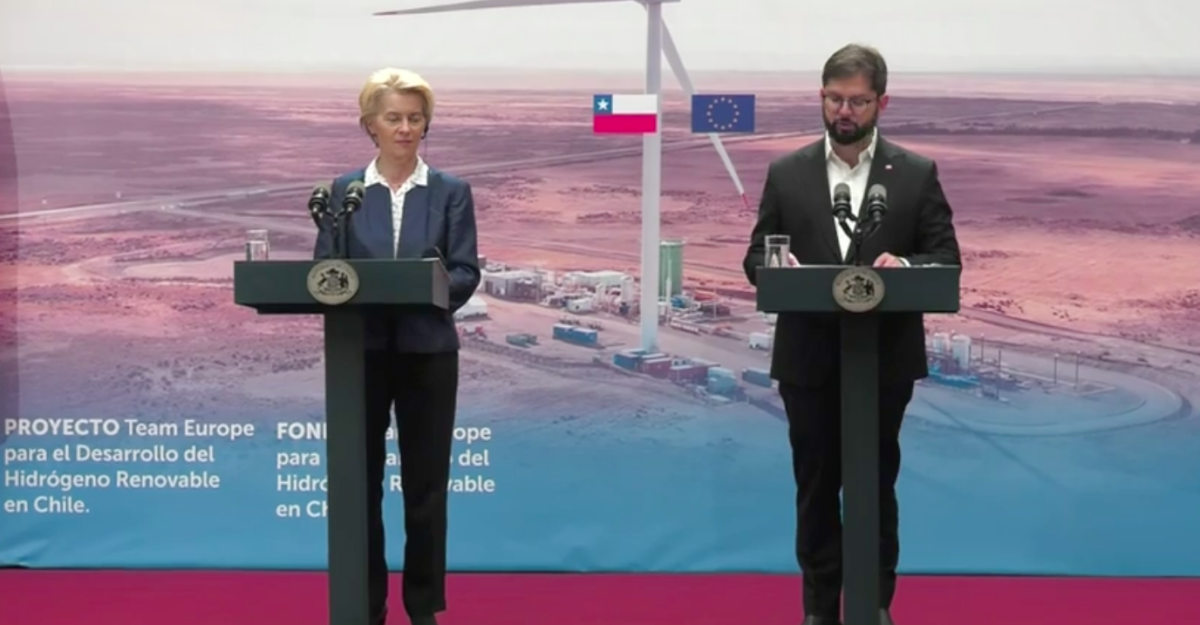European Commission President Ursula von der Leyen has toured Brazil, Argentina, and China, discussing cooperation opportunities, particularly in the hydrogen sector, and has announced an increase in regional investments, with €10 billion allocated through the EU's global investment plan, the Global Gateway. During a joint conference with Brazilian President Lula da Silva, she announced that Europe would invest €2 billion ($2.2 billion) to support Brazil's production of green hydrogen. In Buenos Aires, she held talks with Argentina's President Alberto Fernández to explore potential energy exports to Europe. Hydrogen was a focal point during her meeting with Chile's President Gabriel Boric, where they launched the Fund for Renewable Hydrogen with an initial budget of €225 million. Additionally, the two leaders initiated a technical assistance project.
Norsk Hydro has successfully produced the world's first batch of recycled aluminum using green hydrogen as an energy source, with a test that provides valuable insights into the transition from natural gas to hydrogen and its impact on metal quality. The Norwegian company said that the test examines the differences in behavior and burning temperature between hydrogen and natural gas, and how these variations affect the aluminum melting process and overall.
Air Liquide and Groupe ADP have announced the creation of Hydrogen Airport, an engineering and consulting joint venture specializing in helping airports to integrate hydrogen projects within their infrastructure. The governance team is in place, and the joint venture has begun commercial activities. The venture will focus on estimating the volumes required over time, optimizing logistics, conducting safety and carbon impact studies, and cost analysis.
Popular content
Archigas has unveiled the results of its microsensor (MEMS) technology, which is capable of functioning effectively in highly humid environments, overcoming a common weakness of hydrogen sensors. Sensor expert Friedemann Völklein said that around 1,200 identical sensors can be obtained from a 10-centimeter silicon wafer, providing optimal conditions for mass production of small, fast, precise, and stable analysis systems. Archigas is collaborating with RhineMain University of Applied Sciences (HSRM), the city of Rüsselsheim am Main, and German investors to further develop the hydrogen sensors.
Plug Power has developed a portable hydrogen refueler solution – a self-contained fueling station “on wheels” with a capacity of 1,500 kilograms. “The refueler is designed to reduce infrastructure costs and deployment time for medium-duty and heavy-duty hydrogen-powered commercial vehicles,” said the US company. Plug Power has already secured contracts with three transit customers for the refueler.
This content is protected by copyright and may not be reused. If you want to cooperate with us and would like to reuse some of our content, please contact: editors@pv-magazine.com.


By submitting this form you agree to pv magazine using your data for the purposes of publishing your comment.
Your personal data will only be disclosed or otherwise transmitted to third parties for the purposes of spam filtering or if this is necessary for technical maintenance of the website. Any other transfer to third parties will not take place unless this is justified on the basis of applicable data protection regulations or if pv magazine is legally obliged to do so.
You may revoke this consent at any time with effect for the future, in which case your personal data will be deleted immediately. Otherwise, your data will be deleted if pv magazine has processed your request or the purpose of data storage is fulfilled.
Further information on data privacy can be found in our Data Protection Policy.